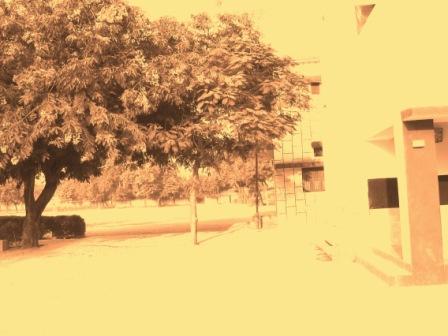The Cypress and Jasmine...
[by Moin Ahsan Jazbi. Translated from the Urdu by Siyaah]
The cypress and jasmine, the waves of breeze at dawn- all are there;
O blossom, in your garden, is one of moist-eye there? [1]
Drink on for a while, in the shade of the tresses and visage;
The magic of dusk there is, the enchantment of dawn is there [2]
If the world listens, this tale of woe is lengthy indeed;
Yes if you listen, to this tale of woe- an end is there [3]
Now in the poetic world of Hind, Jazbi, after Jigar:
This I do wonder: an owner of such sight - is there? [4]
Translator's Notes
[1]Sarv: typically refers to Cypress trees, which were the first preference for gardens in Persia and remain so today; saman: shortened poetic version of yasaman i.e. jasmine; mauj: wave(s); naseem: breeze; sahar: dawn; chashm: eye; tar: wet/moist
[2]Kaakul: literally forelock (lock of hair falling on face) or topknot (style of doing hair by tying it into a high knot), by implication 'tresses' captures the expression somewhat in English; aariz: face/visage; fusoon: magic/enchantment
[3]mukhtasar: brief; taveel: lengthy
[4] Shayaraan-e-Hind: poetic world of Hind (Hind was/is commonly used in Persian and Urdu to refer to the Indian subcontinent; Saahib-nazar: Owner of sight/perspective- I translated it with the implication “such sight” but it could also be read as just “sight”, which would mean: after Jigar, none is left who can even be considered to have (“to own”) sight.
This was not an easy one: It took me some time to settle on the exact meaning and implication of some words and then re-creating the rhyme was not easy. I found it interesting to see the cultural and linguistic loan of "Sarv" (cypress tree) to Urdu in a region where such trees would not have been the norm. Look forward to thoughts and suggestions for improvement...
Monday, March 16, 2009
Subscribe to:
Posts (Atom)





